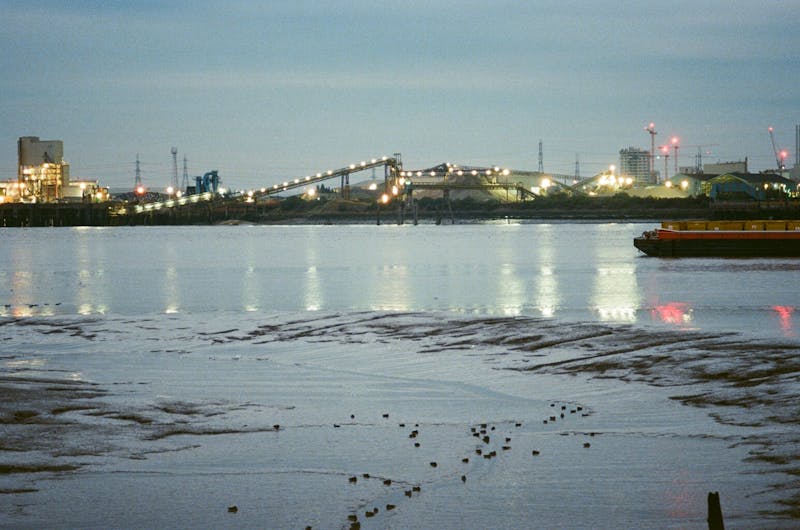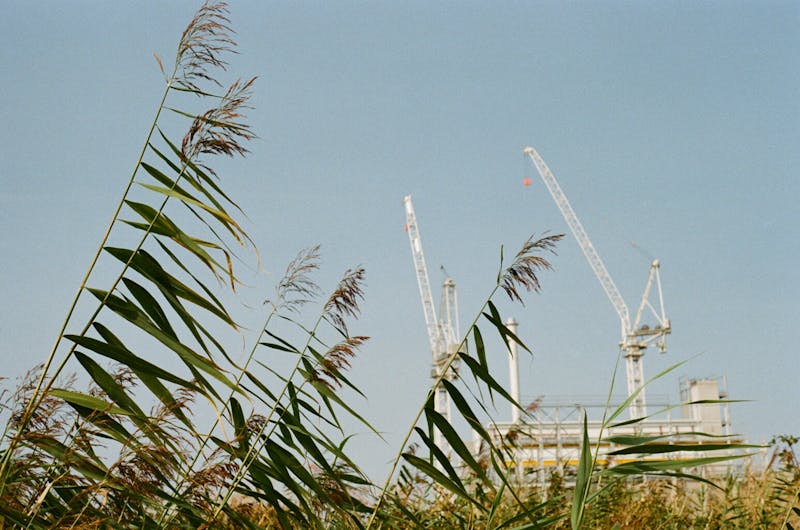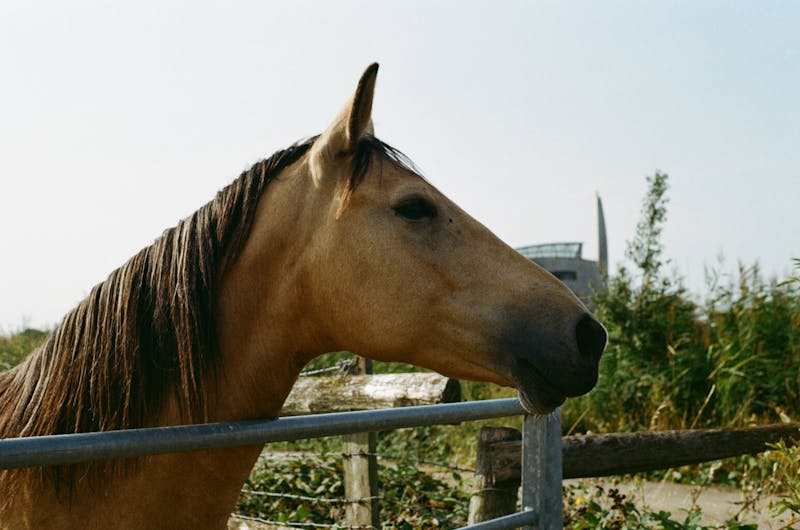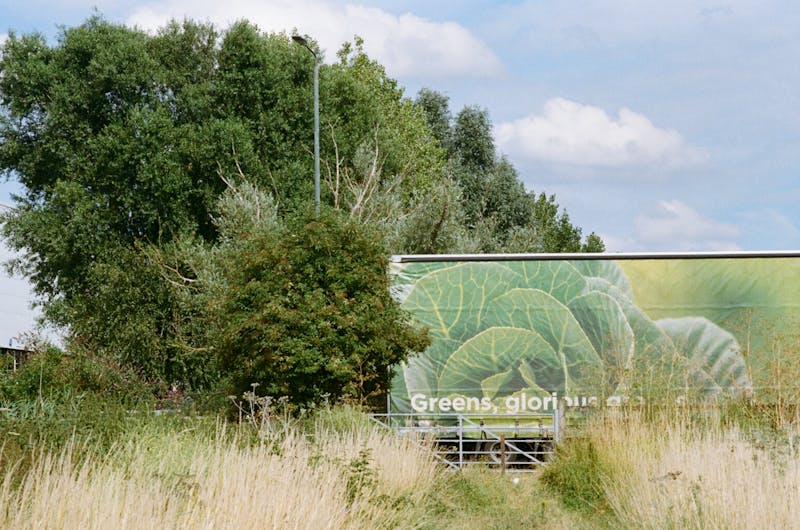Marshlands are places of abundance and resilience. They host a myriad of life forms, sheltering endangered species and migratory birds, while quietly protecting humans from floods, droughts and the mounting effects of climate change. In North Bexley, they continue to store carbon, filter polluted waters and offer refuge, both ecological and emotional.
Yet these living systems, once integral to the health of the Thames and its rhythms of flooding and renewal, have long been under threat. Since the industrial expansion of the Victorian era, London’s marshes have been steadily repurposed to absorb the city’s unwanted infrastructure - its waste incinerators, its sewage works, its silences.
As a member of Friends of Crossness Nature Reserve puts it, “Out of sight, out of mind,” and so what remains is a watery landscape of stark contrasts: rich in biodiversity yet marked by heavy industry; a liminal space where nature and human history intertwine, often uneasily.
So what does it mean to look again? To walk these paths not as visitors, but as neighbours, caretakers and friends?
As another Friend asks, "How might we begin to reconnect—not just with the land, but with the responsibilities that come with living alongside it?”
This question is the seed from which a small call for an ever grew.
Throughout 2024, photographer Sarah White worked closely with the Friends of Crossness Nature Reserve to bear witness to a surviving fragment of Bexley's ancient marshlands, tracing its watery textures and temporalities, and becoming attuned to the delicate weave of ecological, cultural, and political forces that are shaping it today.
"I wanted to begin not with a fixed plan, but with presence." Sarah writes. "To walk, sit, listen. To let the Reserve speak in its own time."
This approach resists the extractive gaze so often used to document nature. Instead of beautiful landscapes or monumental narratives, these photographs dwell in the entangled and the overlooked; a beetle ’s-eye view, the rustle of reeds, the glint of water disturbed by geese. This is an ecology of closeness and contradiction, lush yet scarred, tranquil yet pierced by industrial hums, and the scent of nearby sewage treatments.
The resulting portrait is porous, fragile yet alive—a place where wildness and infrastructure coexist in muddy dissonance. Here, the photographer aims to avoid aestheticising or simplifying this complexity and instead lets herself be guided gently towards a new kind of image-making; in the form of a friendly photographic gesture, one which suspends human-centred perspectives and invites us to imagine other ways of seeing, knowing, and being alongside the land.
Together, Sarah White and the Friends of Crossness Nature River invite us to listen with care, look with patience, and perhaps, feel less powerless in the face of ecological grief. These photographs offer no solutions, but they do offer a kind of hope—hope that quiet attention might itself be a form of resistance. A small call, but one that echoes.
a small call for an ever is an exhibition that brings together photographs by artist Sarah White and deep knowledge and care of Friends of Crossness Nature Reserve. It features photographs produced through a series of visits, walks, events and conversations during Beneath the Pavement, the Marshes programme.
The exhibition is part of Beneath the Pavement, the Marshes, a three-year artistic research programme bringing together artists, ecologists and activists, with local ecological and community groups working in north Bexley, to explore the ground beneath our feet.
Address:
Thamesmead Library
The Nest Community Building and Library
3 Cygnet Square
London SE2 9FA
Opening Times:
Monday - Friday: 9:30 - 17:30
Saturday: 9:30 - 17:00
Closed Sundays
Free Admission



